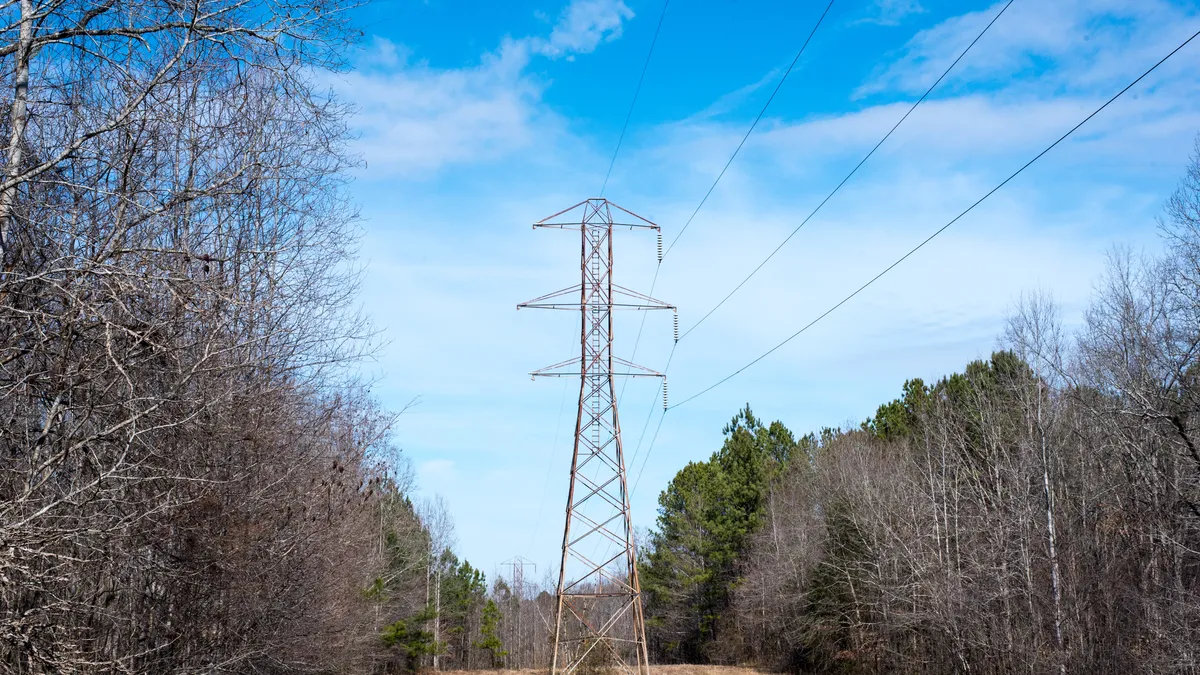Dive Brief:
- The Organization of PJM States, or OPSI, a group representing state utility commissions, unanimously supports a complaint that aims to set tighter oversight requirements on certain transmission projects in the PJM Interconnection’s footprint, according to a Friday filing at the Federal Energy Regulatory Commission.
- Requiring utilities and other entities building regional transmission projects to enter into designated entity agreements, as PJM’s operating agreement demands, would help protect ratepayers from excessive transmission costs, OPSI said.
- “To not require PJM to follow the just and reasonable provisions of its [operating agreement] would harm consumers and jettison an important tool that preserves grid reliability, reduces operational risk, and controls costs,” OPSI said.
Dive Insight:
OPSI’s comments relate to a complaint that American Municipal Power, the Office of the People’s Counsel for the District of Columbia and the PJM Industrial Customer Coalition filed late last month.
The complaint contends that PJM has for years been skirting its own rules by failing to enter into DEAs for all regional transmission projects, including ones that are designed to meet immediate reliability needs and others that are selected outside of competitive processes.
DEAs have provisions that set milestones for project development, provide remedies if a developer misses the milestones and require PJM to act on missed deadlines, according to the complaint. They also require a designated entity to provide PJM with a letter of credit or cash security equal to 3% of the project’s estimated cost.
The complaint was filed amid growing concern that incumbent utilities are increasingly building transmission lines that fall outside competitive processes and that have less oversight.
The complaint could affect nearly 500 pending transmission projects, including some under construction, according to OPSI, which urged FERC to address the issue under a fast-track procedure as the complainants requested.
“The longer the commission waits to require PJM to enforce its [operating agreement,] the longer consumers will miss out on the cost containment benefits DEAs provide consumers,” the state regulators said. “If the commission does not take action, PJM has indicated that it intends to continue to interpret its [operating agreement] in a way that is harmful to consumers and will seek to memorialize that interpretation.”
FERC has previously rejected PJM efforts to change its DEA requirements, according to the complaint.
AMP, the District of Columbia’s ratepayer advocate and PJM industrial customers pointed to several examples of what they said were the harmful effects of PJM’s failure to require DEAs in many cases.
Allegheny Power Systems, for example, revised the cost estimate last year for an immediate-need reliability project from $41.4 million to $143.4 million, they said. If there had been a DEA in place for the project, PJM would have been required to reevaluate the project, according to the complaint.
PJM, however, contends its operating agreement contains “ambiguous” language defining a designated entity, according to an Aug. 9 presentation by the grid operator’s staff.
After failing to get needed stakeholder support to change the definition in May, PJM now plans to ask FERC for permission to clarify the definition, staff said in the presentation.
PJM runs the electric system and wholesale power markets in 13 Mid-Atlantic and Midwestern states plus the District of Columbia.














